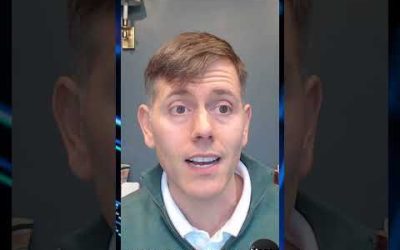by Louis Navellier
November 19, 2024
COP 29 is shorthand for the United Nations Climate Change Conference #29, now taking place in Baku, Azerbaijan, running from November 11 to 22. Meanwhile. Europe’s green energy policies, based on the Paris (COP 21) accords is fueling a right-wing revolution led by disgruntled European farmers. America just staged a similar revolution against mandated EVs, with Donald Trump advocating “drill, baby, drill.”
One big problem with these COP events in recent years is that they typically declare “hydrogen” as the clean “fuel of the future,” but they never offer a viable road map for economies to shift to hydrogen, since it remains cost prohibitive, especially green hydrogen, which requires a lot of water. The previous COP 28 was held in UAE, which has over 140 desalination plants, but despite the UAE offering plenty of water to make green hydrogen, the transition has gone nowhere, probably because you have to use carbon-based fuels for desalination, so green hydrogen is not yet cost effective. The hope of being carbon neutral by 2050 looks to be increasingly futile. I should add that the interim goal of COP 29 is to finalize the terms for rich countries to make loans to poor countries to make a green transition. This goal of fleecing the rich countries to aid poor countries has effectively overshadowed the green priorities of previous COP events.
The green movement in rich countries appears to be losing momentum. For instance, Germany’s Green party earned only 10% of the vote in recent regional elections and it may get fewer votes in the upcoming election on February 23rd, since Chancellor Olaf Scholz’s coalition with the Green party has collapsed.
The Wall Street Journal last week posted an editorial entitled “Europe’s Latest Net-Zero Victim,” which said that “The costs of net-zero climate policies continue to roil Western politics,” citing Germany as the latest victim of the shift to the right, as both businesses and consumers push back on higher electricity costs. The fact that Germany is being forced to “de-industrialize” because manufacturers cannot cope with high electricity prices is a very sad chapter for the largest economy in Europe. The editorial said that the ruling coalition for Germany fell apart after the Germany Finance Minister, Christian Lindner, who is head of the FDP party, said “Enough,” since trying to comply with net-zero policies had become futile.
Another failing “green” state is California, where Governor Gavin Newsom has called for a special session of the legislature to “harden” many of the state’s progressive policies. I suspect Newsom will strive to protect California’s vehicle and utility mandates from federal influence under Trump, but the truth of the matter is that as long as the green transition remains so expensive, it will receive a push back from voters, which may explain why Donald Trump’s largest percentage gain in votes (vs. 2020) was in California, so I will be curious to see if the green movements in California and Germany lose momentum.
Speaking of energy, Iran is now experiencing rolling blackouts, despite having the world’s third largest crude oil reserves and the world’s second largest natural gas reserves. Years of neglect of their own utility grid is now resulting in power outages as winter arrives. Iran recently shut down three power plants that were burning fuel oil, but the supply of natural gas is insufficient to meet seasonal heating and electricity demands. Iran is now in talks with Turkmenistan to boost its supply of natural gas.
More domestic drilling will likely lower energy prices, as will the possible ends of wars in Ukraine and the Middle East. President-elect Trump asked Congressman Mike Waltz to be National Security Advisor. Waltz has been a big critic of the seemingly endless funding for war in Ukraine, and a China trade critic.
Another China critic, Senator Marco Rubio, is President-elect Trump’s choice for Secretary of State, so an epic trade showdown appears to be shaping up with China, which recently reported record exports after encouraging its manufacturers to boost production. Deflation is a looming threat in China, since its over-production continues to reduce the price of goods, such as batteries and solar panels. Due to China’s over production, it appears that higher tariffs may not curtail Chinese exports much, since they will still be a low-cost producer of many items. As a result, the U.S. will continue to levy more tariffs on China.
Trump also picked Elon Musk and Vivek Ramaswamy to lead the Department of Government Efficiency, which will seek “drastic change.” Ramaswamy has been out and about talking about providing federal workers with an 18-month severance pay package if their jobs are eliminated, so huge layoffs of federal workers are clearly about to commence. Furthermore, the Department of Education is marked for full elimination! It will be fascinating to see if Trump’s team can actually shrink the federal government.
Inflation Reports Caused Fed Officials to Second-Guess Future Rate Cuts, Depressing Stocks
Last Wednesday, the Labor Department reported that the Consumer Price Index (CPI) rose 0.2% in October and 2.6% in the past 12 months, which was in-line with economists’ consensus expectations. The core CPI, excluding food and energy, rose 0.3% in October and 3.3% in the past 12 months. Food prices rose 0.2% in October, while energy prices were unchanged, despite the fact that gasoline prices declined by 0.9%. Owners’ Equivalent Rent (shelter costs) rose 0.4% in October, up from only 0.2% in September, accounting for approximately half of the October CPI increase. Considering that Costco had to recall 80,000 pounds of Kirkland butter, since its labels said, “contains cream,” but neglected to say “milk,” plus there is a bird flu hurting the supply of chicken. Considering all that, I think we’re lucky food prices only rose 0.2% in October. Overall, consumer inflation will likely persist until shelter costs stop rising.
On Thursday, the Labor Department reported that the Producer Price Index (PPI) rose 0.2% in October and 2.4% in the past 12 months. The core PPI, excluding food, energy and trade margins, rose 0.3% in October and 3.5% in the past 12 months. Wholesale food prices declined 0.2% in October, while energy prices declined 0.3%. Wholesale service costs only rose 0.1%, while goods prices rose 0.5%. Normally, a strong U.S. dollar should put downward pressure on wholesale goods prices, so I was a bit surprised that goods prices were rising. Overall, wholesale inflation has accelerated from a 0.8% annual pace last November to a 2.4% annual pace in October, so inflation appears to be brewing under the surface.
On Friday, the Commerce Department announced that October retail sales rose 0.4%, which was slightly higher than economists’ consensus estimate of a 0.3% increase. In the past year, retail sales have risen 2.8%, which is not too impressive, since that is essentially the pace of inflation. Electronics & appliance sales rose 2.3% in October, while auto sales rose 1.6%. Excluding vehicle sales and gasoline station sales, retail sales only rose at a 0.1% pace in October, as eight of the 13 categories the Commerce Department surveyed reported gains in October. In addition, September’s retail sales were revised up to a 0.8% increase, double the 0.4% rate first reported, so third-quarter GDP estimates may be revised higher.
In response to these reports, Fed Chairman Jerome Powell said, “The economy is not sending any signals that we need to be in a hurry to lower rates.” Powell added, “The strength we are currently seeing in the economy gives us the ability to approach our decisions carefully.” His comments caused the market to correct, as the probability of another Fed rate cut at its upcoming Federal Open Market Committee (FOMC) meeting is now more uncertain. Since the Fed remains more concerned about the job market than inflation, the upcoming Beige Book survey and November payroll report will be all-important.
Clearly, the Fed’s priority has shifted from inflation to the job market. On Wednesday, the International Longshoreman Association (ILA) walked away from negotiations over their pending strike, since they are demanding that no automation and technology be added to U.S. docks. I mentioned on Fox Business on Wednesday that I expect the ILA problems will likely be resolved, if it includes job guarantees.
Some other Fed official then chimed in about future rate cuts: First, Minneapolis Fed President, Neel Kashkari, said, “There’d have to be a surprise on the inflation front to change the outlook so dramatically,” implying that a 0.25% December rate cut was still on the table. Kashkari added “It’d be hard to imagine the labor market really heats up between now and December. There’s just not that much time.” Then, Boston Fed President, Susan Collins, said another key interest rate cut in December is “certainly on the table, but it’s not a done deal.” Collins added “There’s more data that we will see between now and December, and we’ll have to continue to weigh what makes sense.” While Minneapolis Fed President Kashkari hinted at a rate cut in December due to a weak labor market, Boston Fed President Collins was more cautious and wants to see more data first, so the December rate cut remains uncertain.
The good news is that at the December FOMC meeting we will get a new “dot plot” from the FOMC members, which should clarify the future interest rates cuts more than all this public Fed chatter.
Navellier & Associates owns Costco Wholesale Corporation (COST), in managed accounts. Louis Navellier and his family own Costco Wholesale Corporation (COST), via a Navellier managed account, and Costco Wholesale Corporation (COST), in a personal account.
The post 11-19-24: “Drill, Baby, Drill” Should Trump Europe’s Green Failures and COP 29 appeared first on Navellier.






